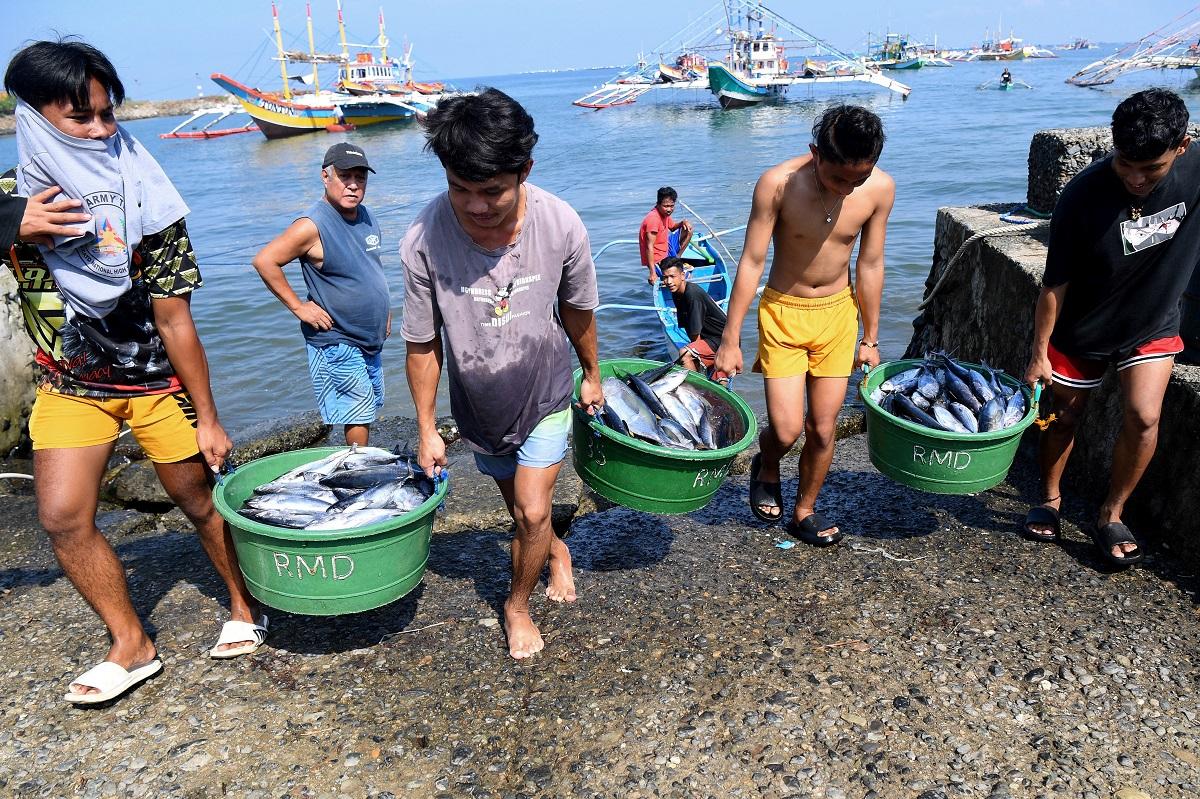Improved fisheries output from WPS seen amid rotational deployment of PH vessels

The Bureau of Fisheries and Aquatic Resources (BFAR) is expecting fisheries production in the West Philippine Sea (WPS) to improve as the government began its rotational deployment of vessels at the Bajo de Masinloc—a traditional, rich fishing ground for Filipino fisherfolk.
"We are confident that if there is really the presence of the government and the fisherfolk are observing that they are being supported, mas lalakas po ang kanilang morale na mangisda (their morale will be boosted)," BFAR spokesperson Nazario Briguera said at the Saturday News Forum in Quezon City.
Briguera added, "Nakikita natin mag-i-improve ang production natin sa West Philippine Sea (We are seeing that the production in the West Philippine Sea will improve)."
National Security Adviser Secretary Eduardo Año on Friday announced that the Philippine Coast Guard (PCG) and BFAR were directed to begin this month the rotational deployment of their vessels at the Bajo de Masinloc, with the goal of ensuring the country's food security.
Briguera said there are 385,300 fishers in the WPS. The territorial waters account for 275,520 metric tons (MT) of fisheries production, equivalent to 6% to 7% of the whole fisheries sector.
Apart from being a source of fisheries, Briguera noted that intensifying government presence at the Bajo de Masinloc would also highlight the "importance of sustaining integrity of marine resources."
To protect PH fishermen
Moreover, the BFAR official said that improving the supply of fisheries from the WPS would eventually translate to lower prices of the food commodity in the market.
"Kung mas maraming supply, napakaposible na mas bababa pa ang presyo ng isda sa ating mga palengke (If we have more supply, it is very possible that the prices of fish would go down in the market)," Briguera said.
PCG spokesperson for WPS Commodore Jay Tarriela said Saturday that the deploying vessels at the traditional fishing ground off the coast of Zambales was not meant to "provoke anybody" or "escalate tension."
Tarriela said that the presence of government vessels "will see to it that Filipino fishermen will be able to continue to fish in the area to support our food security."
Cyanide fishing
Briguera, meanwhile, said that recent deployments at Bajo de Masinloc found that the lagoon was heavily damaged due to cyanide fishing by Chinese and Vietnamese fishermen.
The BFAR official said the use of cyanide "compromises the marine integrity, not only of the Philippines but also other countries."
In September last year, the Office of the Solicitor General said it was considering to file a new complaint against China in the Permanent Court of Arbitration on the reported damage to corals in the WPS.
Briguera said the damage caused by China on corals reached "billions of pesos" already.
In 2021, Senator Risa Hontiveros said that China owed the Philippines more than P800 billion for the destruction of the country's natural resources amid Beijing's continued exploration of the WPS.
Citing Dr. Deo Onda, a scientist from the University of the Philippines' Marine Science Institute, the senator noted that the Philippines was losing around P33.1 billion annually from the damaged reef ecosystems in Panatag Shoal and Spratly Islands due to China's reclamation activities there.
The Philippines first filed a complaint against China in 2013 for its massive claims in the South China Sea under its nine-dash line claim.
In 2016, the Permanent Court of Arbitration ruled in favor of the Philippines, invalidated Beijing's claim, and said that China's nine-dash line has no legal basis under international law.
China claims most of the South China Sea, parts of which are also claimed by the Philippines, Brunei, Malaysia, Taiwan, Vietnam, and Indonesia.
China, however, has refused to recognize the ruling. — VDV, GMA Integrated News



